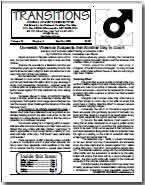The Workplace Gender Equality Agency (WGEA) has once again appeared to ‘find’ wage discrimination without supporting evidence. We have covered this issue previously here.
Thankfully this time around Graduate Careers Australia, the research body that each year compiles statistics on the starting salaries of university graduates, has spoken up about the distortion of its research by the WGEA (see SMH story below).
The myth that women are paid less than men for the same work is so entrenched in our culture that we regularly have to challenge media reports that promote it.
A recent example is Stephanie Peatling’s article titled “Equality? The 64-day question” in the Sun Herald on September 2nd 2012. In this article she incorrectly claimed that, “On average, men earn 17.5 per cent more than women in comparable jobs.”
After a letter to the editor went unpublished we complained to the Australian Press Council which resulted in a prominent correction (page 2) being published in the October 28th edition of the paper and on the Sun Herald website.
The website now reads, “On average, men earn 17.5 per cent more than women… Correction: The original version of this story incorrectly said that, on average, men earn 17.5 per cent more than women in comparable jobs. The figure is based on the average weekly earnings of women and men working full-time across all occupations.”
‘Simplistic’ view distorts graduate pay scale findings
Sydney Morning Herald, January 5th 2013

Misinterpreted … the pay gap between male and female graduates was smaller than earlier reported. Photo: Tamara Voninski
THE agency behind a survey of graduate pay scales says its findings have been misinterpreted by a government organisation.
Graduate Careers Australia, a not-for-profit group funded partly by the higher education sector, said on Friday the pay gap between male and female graduates was actually much smaller than earlier reported.
It said the Workplace Gender Equality Agency, a government statutory authority, had taken an “over simplistic” view of graduate pay scales.
The agency’s report said that the annual gender salary gap had risen from $2000 a year in 2011 to $5000 last year.
It was based on a survey by Graduate Careers Australia, which gathered data from recent higher education graduates.
But in a statement on Friday Graduate Careers Australia said the agency’s findings were wrong.
“The large $5000 pay gap favouring males observed at the overall level can be attributed, at least in part, to the fact that males tend to be over-represented in higher-paying fields such as engineering,” the statement said.
It added that some of the larger wage gaps in fields with low response numbers, such as dentistry, could be unreliable.
And while a 2010 survey had found a wage gap of 3 per cent, its causes were “unexplained”. The equality agency’s report said the gender wage gap had reached 9 per cent in 2012.
Graduate Careers Australia said it was “entirely supportive” of equality in the workplace but was concerned some employers were being “unfairly painted” as discriminating against new recruits.
It said the “residual pay gap” could be a result of workplace inequality but could also be explained by other factors.
The Workplace General Equality Agency denied its interpretation of the data was wrong.
The executive manager of research, Carla Harris, said her organisation’s report drew reasonable conclusions from the data.
Source: 'Simplistic' view distorts graduate pay scale findings (http://www.smh.com.au/national/tertiary-education/simplistic-view-distorts-graduate-pay-scale-findings-20130104-2c8x8.html)


